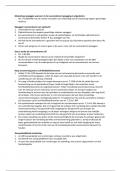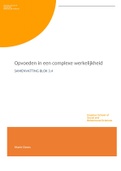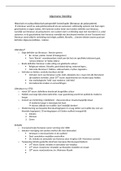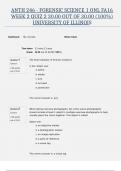Samenvatting
Public International Law 2023 - Samenvatting hele boek 'An introduction to public international law'
- Instelling
- Universiteit Leiden (UL)
Public International Law Samenvatting van het hele boek 'An introduction to public international law'. Dit boek is sinds 2023 voorgeschreven voor dit vak. Omvat alle relevante informatie van het boek en het hoorcollege.
[Meer zien]













